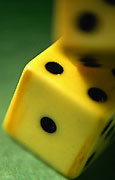Get Help: Gambling
 If you suspect that you might have a problem with gambling, or you know someone who does, use our confidential contact form, contact Prevention Works at (716) 664-3608 or call one of the following help lines:
If you suspect that you might have a problem with gambling, or you know someone who does, use our confidential contact form, contact Prevention Works at (716) 664-3608 or call one of the following help lines:
- National Council: 1-800-522-4700
- New York State Council: 877-8-HOPE-NY (877-846-7369)
- Chautauqua County: (716) 664-3608 Ext. 230
- Rochester: (585) 453-2363
- Niagara Falls: (716) 940-3346
- Buffalo: (716) 879-0555
Anyone of any age who is experiencing a personal, emotional or mental health crisis can call Chautauqua Crisis Services 24 hours a day: 1-800-724-0461.
Parents—Talk to your kids about gambling so they are Too Smart to Start!
As they scratch off their first lottery tickets and bet on their first card games, they aren’t being taught that the fun activity can become addicting and destructive to their health and happiness. Teach your kids about problem gambling. Tell them about the risks of gambling at a young age, the consequences of addiction and how they can prevent themselves from facing their own problems. Keep your kids gambling-free with our educational resources.
With your help, we can make sure they Don’t Bet Yet.
Youth are exposed to gambling now more than ever before and they think it is normal. Fortunately, children also indicate that they would turn to their parents for help if they ever experienced problems with gambling. That is why parents play a crucial role in educating their kids about gambling and its risks of addiction. Visit this site to find out more about problem gambling and how to talk to your kids.
What is a Gambling Disorder?
The National Center for Responsible Gambling (NCRG) created a video that uses research-based facts to provide a better understanding of gambling disorders (formerly referred to as compulsive gambling), whom and how many people they impact, and how they are diagnosed and treated.
Problem Gambling Statistics
Adolescents—Local Data
This chart shows a range from low to high among Chautauqua County School Districts surveyed 2012–2014.
Gambling Activities |
Percentage |
|
| Grades 6,8,10,12 combined | Low | High |
| Gambled in the Past Year | 41.6 | 56.6 |
| Played Bingo for Money | 8.4 | 14.2 |
| Bet Money on Raffles or Charity Games | 16.8 | 24.7 |
| Bet or Spent Money on Pull Tabs | 4.2 | 7.1 |
| Bet Money on Sports | 10.6 | 26.2 |
| Played Cards for Money | 10.6 | 22.4 |
| Played Pool, Basketball, etc. for Money | 8.6 | 16.9 |
| Played “Quick Draw” | 4.8 | 10.7 |
| Played Lottery, Lotto or Scratch Off | 19.0 | 40.0 |
| Played Dice Games for Money | 3.1 | 9.9 |
| Played the Numbers or “Bolita” | 0.0 | 3.5 |
| Bet Money on Arcade or Video Games | 6.5 | 14.4 |
| Bet on Slots, Poker Machines, Etc. | 2.8 | 7.5 |
| Bet on Horses, Dogs, or Other Animals | 2.8 | 6.0 |
| Bet Money at a Casino | 1.0 | 3.3 |
| Bet Money Over the Internet | 1.1 | 4.2 |
Source: Pride NYS Youth Development Survey
Adolescents—National Data
U.S. residents age 14–21:
- Prevalence of problem gambling was 2.1%
- 68% had gambled in the past year
- 11% gambled twice a week or more
- 6.5% at risk of problem gambling
Source: John Welte (2007)
Adults
- 668,000 (5 percent) over age 18 have a gambling problem
- 28 percent also have a chemical dependency problem
- Black and Hispanic males, ages 18-29, are at the highest risk for developing problem gambling
- Males are three times as likely as females to have a gambling problem
- Most Frequent Gambling Problems: Lottery, casino, raffles/pools, cards, sports
Source: OASAS New York Problem Gambling Survey Statistics.
What are the criteria for a gambling disorder diagnosis?
Gambling Disorder in the DSM-5
To meet the criteria for gambling disorder, a person has to have at least four of the problems identified below, within a 12 month period, in conjunction with “persistent and recurrent problematic gambling behavior”:
- Is often preoccupied with gambling (e.g. reliving past gambling experiences, handicapping or planning next gambling episode, or thinking of ways to get money with which to gamble).
- Need to gamble with increasing amounts of money in order to achieve the desired excitement (to get the same excitement from gambling as before).
- Repeated unsuccessful attempts to control, cut back, or stop gambling. (Keeps trying to reduce or stop gambling without success.)
- Restlessness or irritability when attempting to cut down or stop gambling.
- After losing money gambling, often returns another day in order to get even (chasing one’s losses- the frequent and often long-term “chase.”)
- Gambles when feeling distressed (as a way of escaping from problems or relieving feelings of helplessness, guilt, anxiety, or depression, etc.).
- Lies to family members or others to conceal the extent of involvement with gambling.
- Has jeopardized or lost a significant relationship, job, educational or career opportunity because of gambling.
- Relies on others to provide money to relieve a desperate financial situation caused by gambling.
How the Changes in the DSM Help Problem Gamblers
It is crucial for people to get the help they need. It is imperative to properly diagnose individuals and guide them appropriately to opportunities for recovery.
The official definition of gambling disorder allows problem gamblers to understand that their addiction is something that affects millions of people—they are not alone in dealing with its consequences, and it is not their fault. The DSM-5 recognizes gambling disorder as a critical problem similar to drug and alcohol addictions, with the same effects on the individual.
If you or someone you know has a gambling disorder, help is available, and recovery is possible. Read stories of individuals who have recovered in “The Faces of Problem Gambling” and find hope.
The Hidden Epidemic
 For most people, gambling is an activity that is fun and entertaining—one that can be experienced with little or no harmful effects. For others, gambling can be a serious problem that continues even after the fun is gone.
For most people, gambling is an activity that is fun and entertaining—one that can be experienced with little or no harmful effects. For others, gambling can be a serious problem that continues even after the fun is gone.
A gambling disorder is a progressive behavioral disorder in which an individual has a psychological uncontrollable preoccupation and urge to gamble. This results in excessive gambling, the outcome of which is the loss of time, money and self-esteem. The gambling reaches a point at which it compromises, disrupts and ultimately destroys the gambler’s personal life, family relationships, and vocational pursuits. These problems in turn lead to intensification of the gambling behavior. The principle features are emotional dependence on gambling, loss of control and interference with normal functioning.
Just as some people can become addicted to drugs or alcohol; so too it possible for a person to become obsessed with an uncontrollable urge to gamble. The impact of this addiction is much greater than the obvious financial losses that can result from repeated gambling. The long-term result is a steady deterioration of the mental and physical health of both the gambler and his family.
The warning signs
- Losing time from work or school due to gambling
- Repeated failed attempts to stop or control gambling
- Lying about amount of time & money spent on gambling
- Gambling to escape from life’s problems
- Gambling for increased amounts of time and money
- Gambling more money in an attempt to win back losses (chasing)
- Neglecting the care of self or family due to gambling
- Relying on loans and “bailouts” from family or friends to pay debt
- Feelings of helplessness and depression with thoughts of suicide
Information above provided by the Nevada Council on Problem Gambling.
Types of Gamblers
Action Gamblers
By the time they reach their senior years, action gamblers have more than likely been battling a gambling problem for years. Action gamblers prefer games of skill such as poker, black jack, horse and dog racing, and sports betting.
Escape Gamblers
Prefer games of luck. Even if they don’t begin gambling until their senior years, escape gamblers are fascinated with slots, video poker, keno machines and bingo. These types of gambling are fun to them. They don’t require a great deal of knowledge or concentration. Playing them allows the person to escape from physical or emotional pain. They can almost be a hypnotic state. It doesn’t matter whether they are winning or losing. In fact, money becomes like play money. What they seek is the opportunity to chase away worries with the push of a button or the pull of an arm.